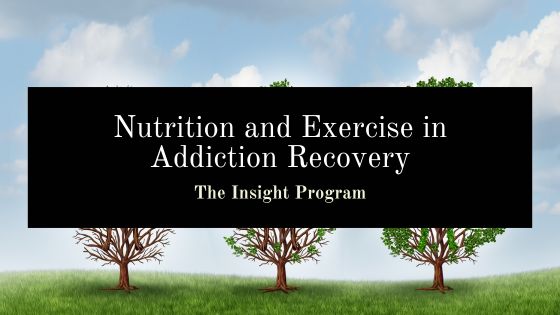Recovery from addiction is a multifaceted journey, requiring more than just abstinence from substances. A holistic approach, encompassing physical, mental, and emotional well-being, significantly enhances the chances of long-term sobriety. Two critical components often overlooked in this process are nutrition and exercise. These elements are pivotal in restoring balance, repairing the body, and fostering a resilient mind.
The Importance of Nutrition in Recovery
Addiction often leads to poor nutritional habits and deficiencies, which can exacerbate the physical and psychological toll on the body. Many substances interfere with the body’s absorption of nutrients, leading to malnutrition. For instance, alcohol impairs the absorption of vital vitamins and minerals, while opioids can disrupt the gastrointestinal system, affecting nutrient absorption.
Restoring proper nutrition is crucial for several reasons:
- Rebuilding Physical Health: Proper nutrition helps repair organ damage, replenish depleted nutrients, and restore energy levels. A balanced diet rich in vitamins, minerals, and proteins can enhance liver function, improve immune response, and promote overall healing.
- Mental Health: Nutrients like omega-3 fatty acids, vitamins B and D, and amino acids are essential for brain health. They support neurotransmitter production, which can improve mood and reduce anxiety and depression—common challenges during recovery.
- Cravings and Blood Sugar Regulation: A balanced diet can stabilize blood sugar levels and reduce cravings for addictive substances. Regular meals and snacks that include complex carbohydrates, lean proteins, and healthy fats can help maintain stable blood sugar levels, reducing the risk of relapse.
- Digestive Health: Addiction often wreaks havoc on the digestive system. A diet high in fiber, probiotics, and hydration can help restore gut health, closely linked to mental well-being through the gut-brain axis.
Exercise: A Powerful Ally in Recovery
Exercise is another critical component of a successful recovery plan. Regular physical activity offers numerous benefits that directly support the recovery process:
- Physical Reconditioning: Addiction can lead to physical deterioration, including muscle weakness and cardiovascular problems. Exercise helps rebuild strength, improve cardiovascular health, and enhance physical fitness.
- Mental Health Benefits: Exercise stimulates the production of endorphins and other neurotransmitters like dopamine and serotonin, which are often depleted in individuals with addiction. These “feel-good” chemicals can boost mood, reduce anxiety and depression, and improve overall mental health.
- Stress Reduction: Regular physical activity is a natural stress reliever. Exercise reduces levels of the body’s stress hormones, such as adrenaline and cortisol, and stimulates the production of endorphins, leading to a sense of well-being and calm.
- Routine and Structure: Incorporating regular exercise into daily routines can provide structure and a sense of accomplishment. This routine can be a valuable tool in preventing relapse by filling time that might otherwise be spent engaging in substance use.
- Social Connections: Participating in group sports or fitness classes can help build social connections and support networks, which are crucial for recovery. These connections provide emotional support and accountability, essential elements in maintaining sobriety.
Integrating Nutrition and Exercise into Recovery Programs
For optimal results, nutrition and exercise should be integrated into comprehensive addiction treatment programs. This integration can be achieved through:
- Personalized Nutrition Plans: Tailored nutrition plans developed by dietitians can address specific deficiencies and health issues related to substance use. These plans should focus on whole foods, balanced meals, and hydration.
- Exercise Programs: Structured exercise programs should be designed to meet individual fitness levels and preferences. Options can include yoga, strength training, aerobic exercises, and outdoor activities like hiking.
- Education and Support: Educating individuals on the importance of nutrition and exercise, along with ongoing support, can empower them to make healthy choices and sustain these habits post-treatment.
Conclusion
Incorporating nutrition and exercise into addiction recovery is not just beneficial; it is essential. These elements address the physical and mental health challenges posed by addiction, promoting holistic healing and long-term recovery. By prioritizing proper nutrition and regular physical activity, individuals can rebuild their bodies, strengthen their minds, and enhance their overall quality of life, paving the way for a successful, substance-free future.

